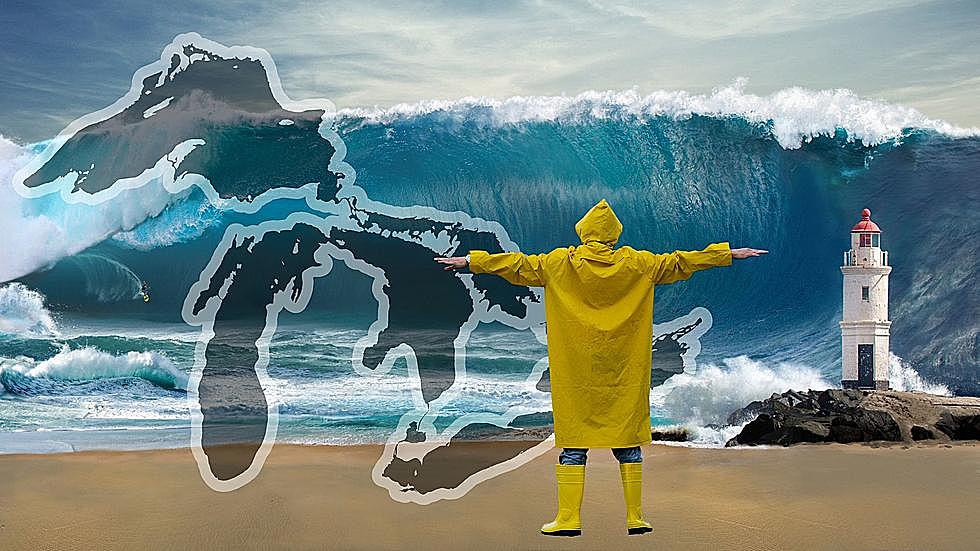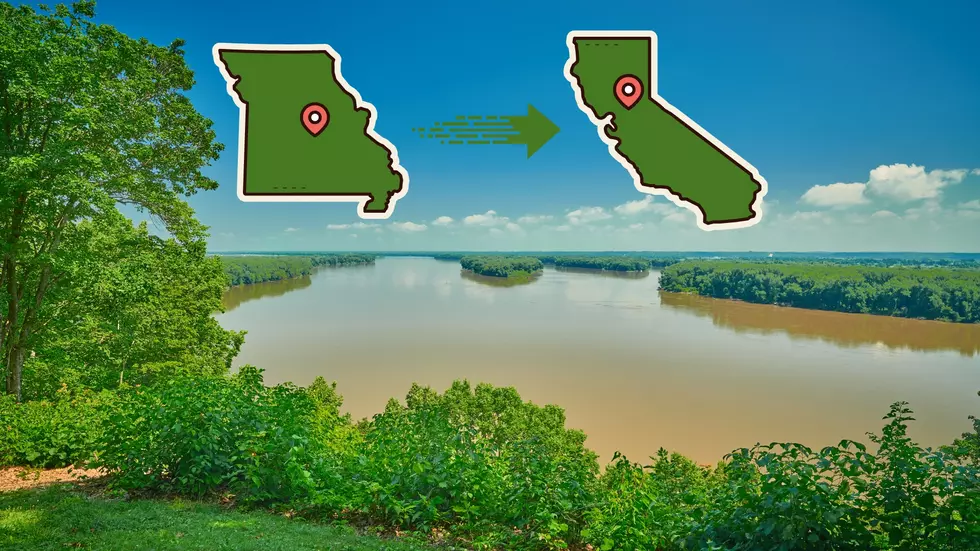
Tsunami Possible in the Great Lakes? Yes and It’s Happened Before
As with all large bodies of water, some crazy things are known to happen. Obviously, in the oceans, lunar movements, and gravitational pull affect the high and low tides. We discussed if this was something that happens with the Great Lakes before.

But something else that happens in the Oceans, that maybe COULD happen with the Great Lakes is, Tsunamis. Most are triggered by underwater earthquakes, or Volcanos erupting. But could something trigger a tsunami on the Great Lakes?
There is a phenomenon on the Great Lakes - Lake Erie Specifically - that can create a tsunami-like event, and that's a "seiche". Essentially, a fast-moving storm, will track lengthwise with the lake, southwest to northeast, with strong winds ahead of it.
Those strong winds will essentially "push" the water in the lake to one end, toward Buffalo, NY, and create what they've now dubbed "The Bathtub Effect." It's the same idea as when you slosh all the water in a bathtub to one end, once it gets to that side, it has to slosh BACK the other direction.
In the meantime, the end of the lake with LESS water, sees lower levels.
Some people have confused seiches with tides before, but it's a rare event that typically only happens with Lake Erie and it's position relative to storm movements in the Midwest.
"Tsunamis" on the Great Lakes?
But what about a REAL tsunami on the Great Lakes? Is it possible that an event LIKE an earthquake underneath them, could trigger a tsunami event that would flood nearby cities, and destroy coastlines?
Absolutely!
In fact, there are more than 106 "Meteotsunamis" that happen on the great lakes every year, though... most are too small to notice.
Again, they're caused by storms moving across the lakes that "push" water ahead of the storms, and it could raise levels at the coast by a foot or so. Some on the Great Lakes have been known to raise levels up to 12 feet in the past 30 years.
However, the biggest, and most destructive Meteotsunami on Lake Michigan happened 85 years ago, on July 13th, just off the shore of Holland.
Meteorologists say storms caused a ten-foot wave to come out of nowhere, on a calm afternoon at shore. The Coast Guard was warning swimmers not to go into the water, but the strong undertow pulled swimmers into rough waters.
When the wave finally hit shore, it threw people off of piers along the coast.
"It looked as if the lake took a deep breath and all at once, the calm was broken. The surf rolled on the beaches, and within 10 minutes, the breakwaters were awash. After the calm, there was not much wind, but it seemed that there must have been terribly heavy squall further out in Lake Michigan." - Robert Bush, Coast Guard member who spoke with the Holland City News after the event
The wave, and the turbulent waters resulted in the death of five people, and since then, the National Weather Service has developed even more precise warning precautions to keep something like this from happening again.
Thankfully, though, a REAL tsunami is VERY unlikely on the Great Lakes, as there are no major fault lines that run underneath them that could cause earthquakes. But that doesn't mean, big waves aren't out of the question on them.
Five Ghost Ships of the Great Lakes
More From KHMO-AM 1070, News-Talk-Sports









